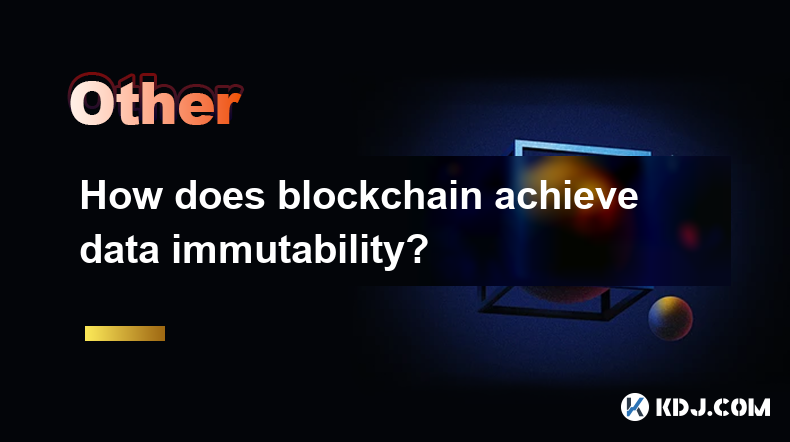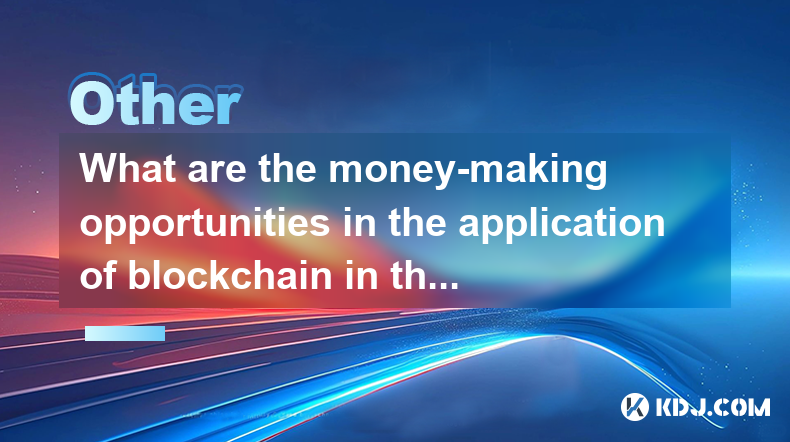-
 Bitcoin
Bitcoin $79,012.1761
-4.78% -
 Ethereum
Ethereum $1,570.4026
-12.09% -
 Tether USDt
Tether USDt $0.9994
-0.02% -
 XRP
XRP $1.9666
-7.46% -
 BNB
BNB $555.4328
-6.02% -
 USDC
USDC $0.9999
-0.01% -
 Solana
Solana $107.5201
-9.67% -
 Dogecoin
Dogecoin $0.1506
-10.27% -
 TRON
TRON $0.2315
-2.62% -
 Cardano
Cardano $0.5814
-10.27% -
 UNUS SED LEO
UNUS SED LEO $8.8602
-2.17% -
 Chainlink
Chainlink $11.3795
-10.04% -
 Toncoin
Toncoin $3.0063
-7.92% -
 Stellar
Stellar $0.2370
-5.38% -
 Avalanche
Avalanche $16.1395
-9.48% -
 Shiba Inu
Shiba Inu $0.0...01134
-7.55% -
 Sui
Sui $1.9135
-13.06% -
 Hedera
Hedera $0.1425
-11.59% -
 Polkadot
Polkadot $3.7145
-5.76% -
 MANTRA
MANTRA $5.9824
-4.31% -
 Bitcoin Cash
Bitcoin Cash $272.1059
-9.40% -
 Litecoin
Litecoin $71.2279
-13.11% -
 Dai
Dai $1.0000
-0.02% -
 Ethena USDe
Ethena USDe $0.9987
-0.05% -
 Bitget Token
Bitget Token $4.1866
-5.67% -
 Pi
Pi $0.5915
4.23% -
 Monero
Monero $200.3568
-5.71% -
 Hyperliquid
Hyperliquid $10.5427
-10.74% -
 Uniswap
Uniswap $5.1188
-11.73% -
 OKB
OKB $50.3711
-2.37%
How does blockchain achieve data immutability?
Blockchain's immutability arises from cryptographic hashing, chaining blocks via their hashes, and decentralized consensus. Altering data necessitates recalculating countless hashes, a computationally prohibitive task, making it highly secure, though not perfectly tamper-proof.
Mar 14, 2025 at 04:01 pm

Key Points:
- Blockchain's immutability stems from its cryptographic hashing and chain structure.
- Each block contains a cryptographic hash of the previous block, creating a chain. Altering a single block requires recalculating hashes for all subsequent blocks, a computationally infeasible task.
- Decentralization and consensus mechanisms further enhance immutability by requiring agreement from multiple parties before adding new blocks.
- While not perfectly immutable, the high cost and complexity of altering data make it highly secure.
- Understanding the specific mechanisms employed by different blockchain networks is crucial to appreciate the nuances of immutability.
How does blockchain achieve data immutability? This seemingly simple question delves into the core of blockchain technology's security and reliability. The answer lies in a sophisticated interplay of cryptography, distributed consensus, and a carefully structured data architecture. Let's explore the mechanisms that underpin this crucial characteristic.
The foundation of blockchain's immutability rests upon cryptographic hashing. Each block of data in a blockchain is assigned a unique cryptographic hash – a fingerprint of its contents. This hash is a fixed-length string of characters, generated by a one-way function. Any even minor change to the block's data drastically alters its hash.
This cryptographic hash is not just a unique identifier; it forms the crucial link between consecutive blocks. Each block contains the hash of the preceding block. This creates a chain, hence the name "blockchain." This chain structure is what gives blockchain its tamper-evident nature.
Imagine trying to alter data within a specific block. To maintain the integrity of the chain, you would need to recalculate not only the hash of the altered block but also the hashes of all subsequent blocks. The computational power required to perform this task on a large blockchain is astronomically high, effectively rendering it impossible.
Furthermore, the decentralized nature of blockchain networks significantly enhances immutability. Unlike centralized databases that are vulnerable to single points of failure, blockchains distribute data across numerous nodes. Adding a new block requires consensus from a significant portion of these nodes, a process that varies depending on the specific blockchain's consensus mechanism.
Proof-of-Work (PoW), commonly used in Bitcoin, requires miners to expend significant computational resources to solve complex cryptographic puzzles before adding a block. Proof-of-Stake (PoS), used in Ethereum and many other networks, requires validators to stake their cryptocurrency to participate in consensus, incentivizing them to act honestly.
These consensus mechanisms introduce a significant barrier to manipulation. To alter a block, a malicious actor would need to control a majority of the network's nodes, a task of immense difficulty and cost, especially in established, large-scale blockchains.
It's important to note that while often described as "immutable," blockchain is not perfectly tamper-proof. Theoretical vulnerabilities exist, and extremely sophisticated attacks could potentially compromise the integrity of certain blockchains, particularly those with less robust consensus mechanisms or smaller network sizes.
However, the practical difficulty and cost of successfully altering data on a large, established blockchain make it exceptionally secure. The cryptographic strength of the hashing algorithms and the consensus mechanisms used provide a high degree of confidence in the integrity and immutability of the recorded data.
Different blockchain platforms implement these mechanisms with varying degrees of sophistication. Some employ more advanced cryptographic techniques or more robust consensus protocols to further enhance immutability. Understanding these specific implementations is crucial for a comprehensive grasp of how each blockchain achieves its level of data immutability.
The strength of a blockchain's immutability is directly related to the network's size, the security of its consensus mechanism, and the cryptographic algorithms employed. A larger, more decentralized network with a strong consensus mechanism and robust cryptography offers a higher degree of immutability compared to a smaller, less decentralized network.
Frequently Asked Questions:
Q: Is blockchain data truly immutable?
A: While often described as immutable, blockchain data is not perfectly tamper-proof. However, the computational cost and difficulty of altering data make it exceptionally secure in practice.
Q: How does the cryptographic hash contribute to immutability?
A: The cryptographic hash acts as a fingerprint of the block's data. Any change to the data results in a completely different hash, making tampering immediately apparent. The chaining of hashes further amplifies this effect.
Q: What role does decentralization play in data immutability?
A: Decentralization prevents a single point of failure. Altering data requires controlling a majority of the network's nodes, a computationally and economically infeasible task for large, established blockchains.
Q: What are the different consensus mechanisms and how do they affect immutability?
A: Proof-of-Work (PoW) and Proof-of-Stake (PoS) are two prominent consensus mechanisms. Both require agreement from multiple participants to add a new block, preventing unauthorized modifications. PoW is computationally intensive, while PoS relies on staked cryptocurrency.
Q: Can a blockchain ever be hacked or its data altered?
A: While highly unlikely in established, large-scale blockchains, theoretical vulnerabilities exist. Extremely sophisticated and resource-intensive attacks could potentially compromise the integrity of a blockchain, but this is exceptionally difficult and costly.
Q: How does the chain structure enhance immutability?
A: Each block's hash links it to the previous block, creating a chain. Altering one block requires recalculating hashes for all subsequent blocks, a computationally infeasible task on large chains. This interconnected structure makes tampering readily detectable.
Q: What are some examples of blockchains with high immutability?
A: Bitcoin and Ethereum, with their large network sizes and well-established consensus mechanisms, are often cited as examples of blockchains with high levels of immutability. However, the specific level of immutability can vary depending on the network's characteristics and implementation details.
Disclaimer:info@kdj.com
The information provided is not trading advice. kdj.com does not assume any responsibility for any investments made based on the information provided in this article. Cryptocurrencies are highly volatile and it is highly recommended that you invest with caution after thorough research!
If you believe that the content used on this website infringes your copyright, please contact us immediately (info@kdj.com) and we will delete it promptly.
- Tether to Acquire Majority Stake in Adecoagro; Bioceres Allegedly Next
- 2025-04-07 05:15:13
- Renowned Crypto Investor Has Outlined a Brave XRP Price Prediction
- 2025-04-07 05:15:13
- Toncoin (TON) Price Regains Traction and Might Soon Surge Further Toward the $4.80 Resistance Zone
- 2025-04-07 05:10:12
- The cryptocurrency mining landscape in 2025 is flourishing, with cloud mining shining as a highly accessible
- 2025-04-07 05:10:12
- Solaxy (SOLX) Raises $28M in Presale, Aiming to Be the Arbitrum of Solana
- 2025-04-07 05:05:13
- BingX Launches Perpetual Trading on TradingView
- 2025-04-07 05:05:13
Related knowledge

Is the ranking of Chinese blockchain apps real and reliable?
Apr 04,2025 at 09:01pm
The ranking of Chinese blockchain apps has become a topic of interest for many in the cryptocurrency community, as it provides insights into the popularity and adoption of blockchain technology within China. However, the reliability and authenticity of these rankings are often questioned. This article aims to delve into the factors that influence these ...

What are the future development trends of blockchain game development?
Apr 03,2025 at 05:00am
Blockchain technology has revolutionized various industries, and gaming is no exception. As we look to the future, several trends are set to shape the development of blockchain games. These trends not only promise to enhance the gaming experience but also to integrate blockchain technology more seamlessly into the gaming ecosystem. Let's explore these t...

What are the high-return opportunities for blockchain investments?
Apr 05,2025 at 02:35pm
Blockchain technology has revolutionized the financial world, offering numerous high-return investment opportunities. These opportunities span various sectors within the cryptocurrency ecosystem, including cryptocurrencies, decentralized finance (DeFi), non-fungible tokens (NFTs), and blockchain startups. Each of these areas presents unique risks and re...

What are the maintenance costs of blockchain system development?
Apr 03,2025 at 06:07pm
The maintenance costs of blockchain system development are multifaceted and depend on various factors. These costs can include technical maintenance, security updates, infrastructure expenses, and personnel costs. Understanding these elements is crucial for anyone planning to develop or maintain a blockchain system. Technical MaintenanceTechnical mainte...

What are the money-making models of blockchain games?
Apr 04,2025 at 02:00pm
Blockchain games have emerged as a revolutionary way for players to earn real money while enjoying their favorite pastime. These games leverage the power of blockchain technology to create unique money-making models that benefit both the players and the developers. In this article, we will explore the various money-making models of blockchain games and ...

What are the money-making opportunities in the application of blockchain in the field of Internet of Things?
Apr 05,2025 at 10:35pm
The integration of blockchain technology with the Internet of Things (IoT) presents numerous money-making opportunities. Blockchain, with its decentralized and secure nature, can revolutionize how IoT devices interact, manage data, and conduct transactions. This article will explore various avenues where entrepreneurs, developers, and investors can capi...

Is the ranking of Chinese blockchain apps real and reliable?
Apr 04,2025 at 09:01pm
The ranking of Chinese blockchain apps has become a topic of interest for many in the cryptocurrency community, as it provides insights into the popularity and adoption of blockchain technology within China. However, the reliability and authenticity of these rankings are often questioned. This article aims to delve into the factors that influence these ...

What are the future development trends of blockchain game development?
Apr 03,2025 at 05:00am
Blockchain technology has revolutionized various industries, and gaming is no exception. As we look to the future, several trends are set to shape the development of blockchain games. These trends not only promise to enhance the gaming experience but also to integrate blockchain technology more seamlessly into the gaming ecosystem. Let's explore these t...

What are the high-return opportunities for blockchain investments?
Apr 05,2025 at 02:35pm
Blockchain technology has revolutionized the financial world, offering numerous high-return investment opportunities. These opportunities span various sectors within the cryptocurrency ecosystem, including cryptocurrencies, decentralized finance (DeFi), non-fungible tokens (NFTs), and blockchain startups. Each of these areas presents unique risks and re...

What are the maintenance costs of blockchain system development?
Apr 03,2025 at 06:07pm
The maintenance costs of blockchain system development are multifaceted and depend on various factors. These costs can include technical maintenance, security updates, infrastructure expenses, and personnel costs. Understanding these elements is crucial for anyone planning to develop or maintain a blockchain system. Technical MaintenanceTechnical mainte...

What are the money-making models of blockchain games?
Apr 04,2025 at 02:00pm
Blockchain games have emerged as a revolutionary way for players to earn real money while enjoying their favorite pastime. These games leverage the power of blockchain technology to create unique money-making models that benefit both the players and the developers. In this article, we will explore the various money-making models of blockchain games and ...

What are the money-making opportunities in the application of blockchain in the field of Internet of Things?
Apr 05,2025 at 10:35pm
The integration of blockchain technology with the Internet of Things (IoT) presents numerous money-making opportunities. Blockchain, with its decentralized and secure nature, can revolutionize how IoT devices interact, manage data, and conduct transactions. This article will explore various avenues where entrepreneurs, developers, and investors can capi...
See all articles





















































































